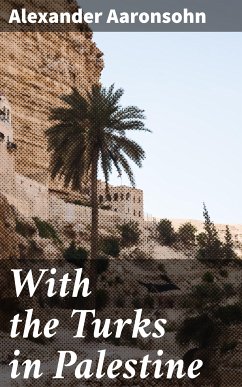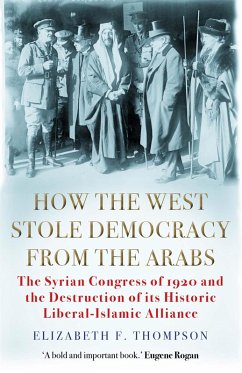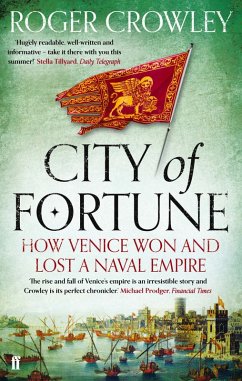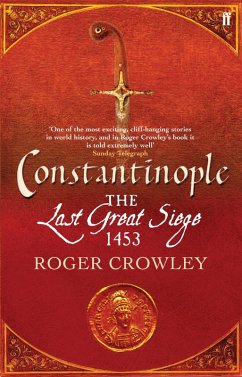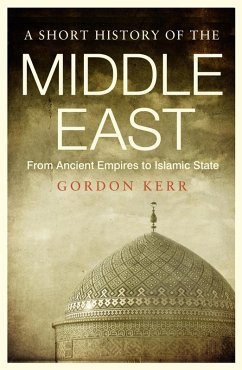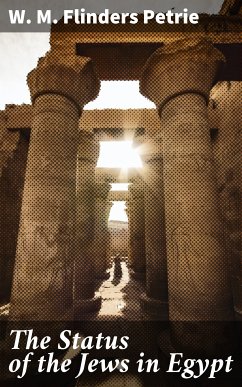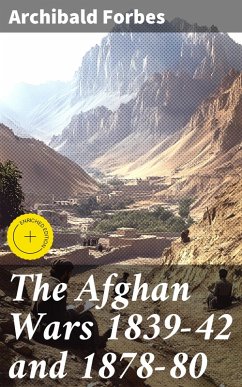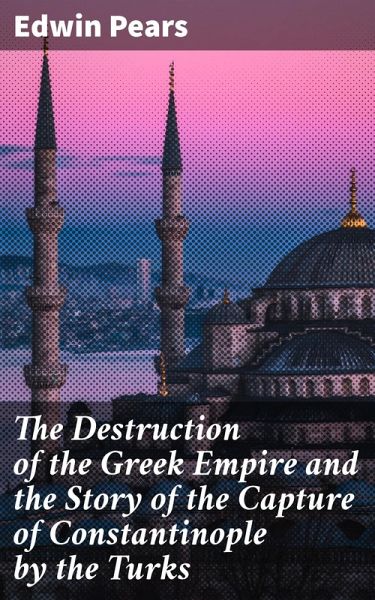
The Destruction of the Greek Empire and the Story of the Capture of Constantinople by the Turks (eBook, ePUB)
Enriched edition. The Conquest of Constantinople: A Tale of Empires and Betrayal
Kommentar: Holloway, Ryan / Redaktion: Good Press
Versandkostenfrei!
Sofort per Download lieferbar
0,49 €
inkl. MwSt.
Weitere Ausgaben:

PAYBACK Punkte
0 °P sammeln!
In "The Destruction of the Greek Empire and the Story of the Capture of Constantinople by the Turks," Edwin Pears delves into the pivotal historical events surrounding the fall of Constantinople in 1453. This meticulously researched work combines narrative history with analytical commentary, capturing not only the political and military maneuvers that led to this catastrophic event but also the cultural and social ramifications for the Greek Empire. Written in a clear and engaging literary style, Pears brings to life the voices and perspectives of both the besieged and the conquerors, framing ...
In "The Destruction of the Greek Empire and the Story of the Capture of Constantinople by the Turks," Edwin Pears delves into the pivotal historical events surrounding the fall of Constantinople in 1453. This meticulously researched work combines narrative history with analytical commentary, capturing not only the political and military maneuvers that led to this catastrophic event but also the cultural and social ramifications for the Greek Empire. Written in a clear and engaging literary style, Pears brings to life the voices and perspectives of both the besieged and the conquerors, framing the fall of Constantinople within the broader context of the decline of Byzantine power and the rise of the Ottoman Empire. Edwin Pears, a British historian and journalist, possessed a keen interest in the complexities of Ottoman history, likely shaped by his time in the region and his fluency in Turkish. His deep understanding of the cultural dynamics between Byzantium and the Ottomans informs his narrative, offering readers rare insights into the motivations behind the Turkish siege and the desperation of the Greek defenders. Pears's commitment to historical accuracy and vivid storytelling underscores the importance of this pivotal moment in world history. This book is essential for readers interested in the intersections of culture, warfare, and history. Pears's engaging prose and thorough scholarship not only illuminate the specifics of the fall of Constantinople but also provoke reflections on the broader implications of empire-building and cultural loss. Scholars and general readers alike will find invaluable insights within its pages. In this enriched edition, we have carefully created added value for your reading experience: - Hand-picked Memorable Quotes shine a spotlight on moments of literary brilliance. - Interactive footnotes clarify unusual references, historical allusions, and archaic phrases for an effortless, more informed read.
Dieser Download kann aus rechtlichen Gründen nur mit Rechnungsadresse in A, B, BG, CY, CZ, D, DK, EW, E, FIN, F, GR, H, IRL, I, LT, L, LR, M, NL, PL, P, R, S, SLO, SK ausgeliefert werden.




